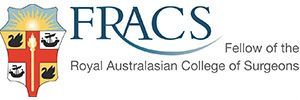After Surgery: What Next?
What Happens After Weight Loss Surgery?
After weight loss surgery, there are several steps to ensure a successful and healthy post-operative journey. Weight loss surgery is a significant and life-changing procedure, so it's essential to follow medical advice and make appropriate lifestyle changes for the best outcomes.
Immediate Post-Operative Care
Immediately after weight loss surgery, you will enter a recovery phase. Here's what to expect and why it's essential to follow medical staff instructions:
- Expectations: In the first 24-48 hours post-surgery, you will likely remain in the hospital. You may feel nauseous and experience some pain or discomfort at the surgical site. A sore throat or a dry mouth from the anaesthesia tube is normal.
- Pain Management and Wound Care: Pain is usually minimal after keyhole surgery. Our surgeons use every method to reduce pain as much as possible. You will receive medications to manage pain, but it's important to communicate with your medical team if you're experiencing discomfort. You will be given instructions on what to do with your dressings.
Dietary Guidelines
Proper nutrition is a cornerstone of your recovery after weight loss surgery. Here are the dietary guidelines you should follow:
- Diet Progression: Your surgeon and dietician will go through the diet progression following surgery. Generally, this involves two weeks of liquids, two weeks of puree and then two weeks of soft diet. After this, you will be able to eat whatever you like. It is important to maintain small portions and make healthy food choices.
- Importance of Small, Frequent Meals: Your stomach capacity will significantly reduce after weight loss surgery. Eating large meals can lead to discomfort or even vomiting. Therefore, consuming small, frequent daily meals is crucial to ensure proper nutrition and prevent complications.
- Hydration and Water Intake: Staying hydrated is paramount. Aim to drink plenty of liquid between meals to avoid dehydration. However, avoid drinking with meals, as it can cause discomfort. It is important to be mindful that soft drinks, juices and alcohol have a lot of calories.
Physical Activity and Exercise
Physical activity and exercise are important to your long-term success after weight loss surgery. Here's what you should know:
- Importance of Gentle Movement: In the immediate post-operative phase, focus on gentle movements like walking. Getting out of bed and taking short walks can help prevent blood clots and promote healing. Start slowly and increase your activity level gradually.
- Gradual Progression of Physical Activity: As you recover, you can gradually increase the intensity and duration of your physical activity.
- Benefits of Exercise: Exercise is vital to weight loss and overall health. It helps with weight maintenance, muscle preservation, and improved cardiovascular health. Regular physical activity also boosts your mood and enhances your quality of life.
Nutritional Supplements
Nutritional supplementation is a critical aspect of post-weight loss surgery life. Here's why it's necessary:
- Necessity of Supplementation: After weight loss surgery, the stomach's reduced size can limit the absorption of essential vitamins and minerals. Therefore, supplementation is necessary to prevent deficiencies.
- Recommended Supplements: Common supplements include high-quality multivitamins, calcium, vitamin D, B12, and iron. The specific supplements and dosages may vary depending on the type of surgery and individual needs.
- Regular Check-ups: Regular follow-up appointments with a dietitian and surgeon are essential to monitor nutritional status. Blood tests can help detect any deficiencies or imbalances, allowing for timely adjustments to the supplementation plan.
Long-Term Dietary Habits
Good long-term dietary habits are crucial for maintaining weight loss and overall health.
- Transition to a Long-Term Eating Plan: As recovery progresses, you should gradually transition to a sustainable, long-term eating plan. This plan should focus on balanced meals, portion control, and mindful eating.
- Portion Control: After weight loss surgery, portion control becomes paramount. Measure your food portions to prevent overeating. Using smaller plates and utensils can also help.
- Balanced Meals: Balanced meals with lean proteins, vegetables, fruits, and whole grains are key. You should limit processed foods, sugary snacks, and high-calorie, low-nutrient options.
- Mindful Eating: Mindful eating practices, such as savouring each bite, eating slowly, and paying attention to hunger and fullness cues, can be helpful.
- Avoiding High-Calorie, Low-Nutrient Foods: It is important to avoid high-calorie, low-nutrient foods like sugary drinks, fried foods, and excessive alcohol. These can easily slow or even reverse your weight loss.
Monitoring and Follow-Up
We will schedule your follow-up appointments. We are here to help, so if you need extra appointments, just let us know.
- Schedule for Follow-Up Appointments: You will have a series of follow-up appointments with your surgical team in the first year after surgery. These appointments occur regularly at four weeks, three months, six months, and one year post-surgery. After the first year, annual or second-yearly check-ups are encouraged.
- Purpose of Appointments: The primary purpose of these appointments is to monitor your progress, address any concerns, and make necessary adjustments to your plan. We will track weight loss, assess nutritional status, and guide diet, exercise, and overall health.
- Importance of Long-Term Monitoring: Long-term monitoring is important for sustained success and avoidance of complications.
Complications and When to Seek Help
Although rare, complications can arise after weight loss surgery. Your surgeon will let you know what to look out for and remain available for help and guidance.






